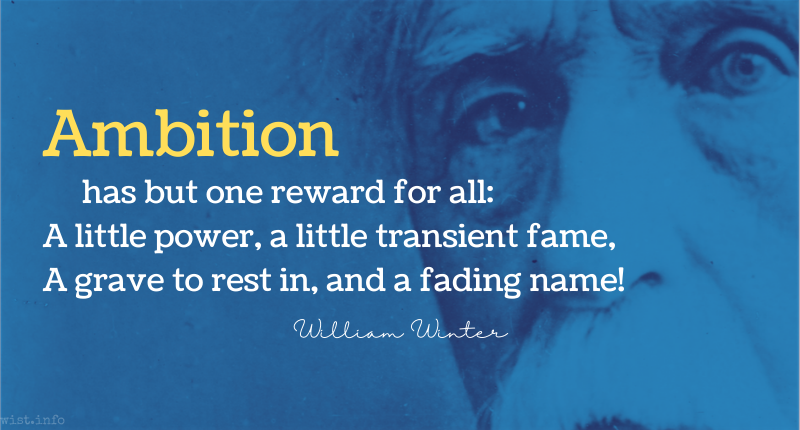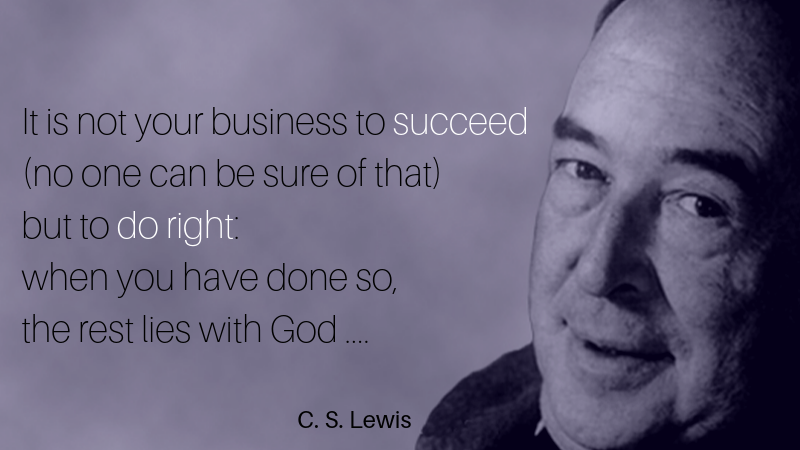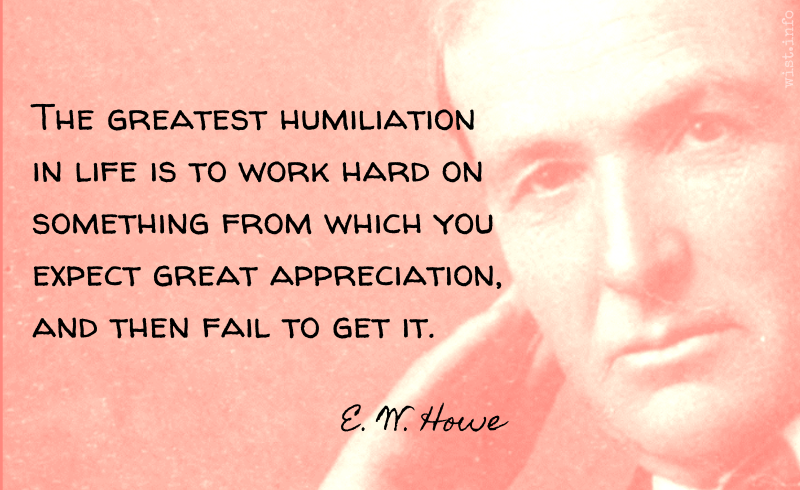How deep is evil rooted in the breasts
Of all men! tho’ our pardon we extend not
To him, who, grasping at some great reward,
Becomes a sinner: yet since, in proportion
As he grows boldly profligate, he reaps
Greater advantages, he with more ease
The world’s reproachful language may sustain.[ὡς ἔμφυτος μὲν πᾶσιν ἀνθρώποις κάκη”
ὅστις δὲ πλεῖστον μισϑὸν εἰς χεῖρας λαβὼν
κακὸς γένηται, τῷδε συγγνώμη μὲν οὔ,
πλείω δὲ μισϑὸν μείζονος τόλμης ἔχων
τὸν τῶν λεγόντων ῥᾷον ἂν φέροι Ῥόγον.]Euripides (485?-406? BC) Greek tragic dramatist
Bellerophon [Βελλεροφῶν], frag. 297 (TGF) (c. 430 BC) [tr. Wodhull (1809)]
(Source)
Nauck frag. 299. Barnes frag. 44, Musgrave frag. 9. (Source (Greek)). Alternate translations:
All men have badness in their natures! The one who takes most pay into his hands, and proves bad, gets no pardon; but if he has more pay for greater audacity, he'll endure censorious talk more easily.
[tr. Collard, Hargreaves, Cropp (1995)]
There is evil in all men. Whoever gets his hands on good money and is seen to be wicked, he is roundly condemned. But if he were yet more daring, gaining even greater reward, he would have less of a problem enduring being criticized by others.
[tr. Stevens (2012)]
Quotations about:
reward
Note not all quotations have been tagged, so Search may find additional quotes on this topic.
Death, to a good man is but passing through a dark entry, out of one little dusky room of his Father’s house, into another that is fair and large, lightsome and glorious, and divinely entertaining.
Isaac Watts (1674-1748) English theologian and hymnodist
Miscellaneous Thoughts in Prose and Verse [Reliquiæ Juveniles], ch. 32 “Earth, Heaven, and Hell” (1734)
(Source)
This phrase is often misattributed to Adam Clarke (1762-1832) (e.g., 1853, 1853, 1876, 1880, 1888) or Samuel Clarke (1727-1769) (e.g., 1827). Finding the primary source confirms Watts' authorship, though it is possible that others used the passage in sermons and writings, and the attribution was misremembered.
Anything you do from the heart enriches you, but sometimes not till years later.
Mignon McLaughlin (1913-1983) American journalist and author
The Neurotic’s Notebook, ch. 9 (1963)
(Source)
Self-indulgence and sensual delight are born with man and die only at his death; neither the joys nor the sorrows of life can deprive him of them; he finds therein the reward of success, or a consolation for misfortune.
[La mollesse et la volupté naissent avec l’homme, et ne finissent qu’avec lui; ni les heureux ni les tristes événements ne l’en peuvent séparer; c’est pour lui ou le fruit de la bonne fortune, ou un dédommagement de la mauvaise.]
Jean de La Bruyère (1645-1696) French essayist, moralist
The Characters [Les Caractères], ch. 11 “Of Mankind [De l’Homme],” § 110 (11.110) (1688) [tr. Stewart (1970)]
(Source)
(Source (French)). Alternate translations:
Softness and voluptuousness are innate, they are born with men and die with them, happy, or unhappy accidents never cure 'em, good and bad fortune equally produce them.
[Bullord ed. (1696)]
Luxury and Voluptuousness are innate, born with Man and die with them, happy or unhappy Accidents never part him from them; the fruits he enjoys of a good Fortune and the amends of a bad one.
[Curll ed. (1713)]
Softness and Voluptuousness are innate to Men, and stick by them till they die; it is beyond the Power of happy, or unhappy Accidents to detach them: they are the Emanations of Prosperity or used as Solaces in Adversity.
[Browne ed. (1752)]
Want of vigour and voluptuousness are innate in man and cease with him, and fortunate or unfortunate circumstances never make him abandon them; they are the fruits of prosperity or become a solace in adversity.
[tr. Van Laun (1885)]
Those three things — autonomy, complexity, and a connection between effort and reward — are, most people will agree, the three qualities that work has to have if it is to be satisfying.
Malcolm Gladwell (b. 1963) Anglo-Canadian journalist, author, public speaker
Outliers: The Story of Success, ch. 5, sec. 10 (2008)
(Source)
So much to win, so much to lose,
No marvel that I fear to choose.Letitia Elizabeth Landon (1802-1838) English poet and novelist [a/k/a L.E.L.]
“The Golden Violet” (1827)
(Source)
The Promised Land always lies on the other side of a wilderness.
Havelock Ellis (1859-1939) British sexologist, physician, social reformer [Henry Havelock Ellis]
The Dance of Life, ch. 5 “The Art of Religion,” sec. 4 (1923)
(Source)
May the gods —
And surely there are powers that care for goodness,
Surely somewhere justice counts — may they
And your own consciousness of acting well
Reward you as they should![Di tibi, si qua pios respectant numina, si quid
Usquam iustitiae est et mens sibi conscia recti,
Praemia digna ferant.]Virgil (70-19 BC) Roman poet [b. Publius Vergilius Maro; also Vergil]
The Aeneid [Ænē̆is], Book 1, l. 603ff (1.603-605) [Aeneas to Dido] (29-19 BC) [tr. Fitzgerald (1981), l. 820ff]
(Source)
(Source (Latin)). Alternate translations:
The Gods (if there be any Providence,
Or Justice, will the pious recompence)
Sure must reward thee.
[tr. Ogilby (1649)]
The gods, if gods to goodness are inclin'd;
If acts of mercy touch their heav'nly mind,
And, more than all the gods, your gen'rous heart.
Conscious of worth, requite its own desert!
[tr. Dryden (1697)]
The gods (if any powers divine regard the pious, if justice any where exists, and a mind conscious of its own virtue) shall yield thee a just recompense.
[tr. Davidson/Buckley (1854)]
May Heaven, if virtue claim its thought,
If justice yet avail for aught,
Heaven, and the sense of conscious right,
With worthier meed your acts requite!
[tr. Conington (1866)]
If anywhere
The gods regard the good; if anywhere
Be justice, and a mind within itself
Conscious of rectitude, -- the gods shall give
Deserved reward to thee.
[tr. Cranch (1872)]
The gods grant thee worthy reward, if their deity turn any regard on goodness, if aught avails justice and conscious purity of soul.
[tr. Mackail (1885)]
But if somewhere a godhead is the righteous man to heed,
If justice is, or any soul to note the right it wrought,
May the Gods give thee due reward.
[tr. Morris (1900)]
The gods, if gods the good and just regard,
And thy own conscience, that approves the right,
Grant thee due guerdon and a fit reward.
[tr. Taylor (1907), st. 80, l. 712ff]
May gods on high (if influence divine
bless faithful lives, or recompense be found
in justice and thy self-approving mind)
give thee thy due reward.
[tr. Williams (1910)]
May the gods, if any divine powers have regard for the good, if justice has any weight anywhere -- may the gods and the consciousness of right bring thee worthy rewards!
[tr. Fairclough (1916)]
If there is justice anywhere, if goodness
Means anything to any power, if gods
At all regard good people, may they give
The great rewards you merit.
[tr. Humphries (1951)]
If angels there be who look after the good, if indeed just dealing
And minds informed with the right mean anything to heaven,
May God, reward you as you deserve!
[tr. Day Lewis (1952)]
May gods confer on you your due rewards,
if deities regard the good, if justice
and mind aware of right count anywhere.
[tr. Mandelbaum (1971), l. 847ff]
May the gods bring you the reward you deserve, if there are any gods who have regard for goodness, if there is any justice in the world, if their minds have any sense of right.
[tr. West (1990)]
May the gods, and the mind itself conscious of right,
bring you a just reward, if the gods respect the virtuous,
if there is justice anywhere.
[tr. Kline (2002)]
May the gods --
If any powers above look down on the pious,
If there is any justice anywhere -- may the gods
And your good conscience reward you
As you deserve.
[tr. Lombardo (2005)]
But may the gods,
if there are Powers who still respect the good and true,
if justice still exists on the face of the earth,
may they and their own sense of right and wrong
bring you your just rewards.
[tr. Fagles (2006), l. 720ff]
May the gods -- if they honor pious men, if there's justice anywhere, and conscience -- reward you in kind.
[tr. Bartsch (2021)]
All religions are ultimately cargo cults. Adherents perform required rituals, follow specific rules, and expect to be supernaturally gifted with desired rewards — long life, honor, wisdom, children, good health, wealth, victory over opponents, immortality after death, any desired rewards.
I tore myself away from the safe comfort of certainties through my love for truth — and truth rewarded me.
Simone de Beauvoir (1908-1986) French author, existentialist philosopher, feminist theorist
All Said and Done (1974)
(Source)
Do the best you can where you are; and, when that is accomplished, God will open a door for you, and a voice will call, “Come up hither into a higher sphere.”
Henry Ward Beecher (1813-1887) American clergyman and orator
Life Thoughts [ed. E. Proctor] (1858)
(Source)
For, though th’ ascent be rough, and steep the fall,
Ambition has but one reward for all:
A little power, a little transient fame,
A grave to rest in, and a fading name!William Winter (1836-1917) American dramatic critic and author
“The Queen’s Domain,” The Queen’s Domain, and Other Poems (1858)
(Source)
Do not be chary of appreciation. Hearts are unconsciously hungry for it.
Phillips Brooks (1835-1893) American clergyman, hymnist
“Destruction and Fulfilment,” Sermon 12, Twenty Sermons, 4th Series (1887)
(Source)
Sermon on Matt. 17.
The world oftener rewards the appearances of merit than merit itself.
François VI, duc de La Rochefoucauld (1613-1680) French epigrammatist, memoirist, noble
Réflexions ou sentences et maximes morales [Maxims], #312 (1665-1678)
(Source)
There is always some peace in having submitted to the right. Don’t spoil it by worrying about the results, if you can help it. It is not your business to succeed (no one can be sure of that) but to do right: when you have done so, the rest lies with God ….
C. S. Lewis (1898-1963) English writer, literary scholar, lay theologian [Clive Staples Lewis]
Letter to Arthur Greeves, Collected Letters of C. S. Lewis, Vol. 2: 1931-1949 (2004)
(Source)
AGATHA: … But after that, I’d better see some cake.
TARVEK: You know, there’s more to being an evil despot than getting cake whenever you want it.
AGATHA: If that’s what you think, then you’re doing it wrong!Phil Foglio (b. 1956) American writer, cartoonist
Girl Genius, Vol. 13, p. 38, “The Heterodyne Requires Cake” (10 Apr 2013)
(Source)
In Agatha H. and the Siege of Mechanicsburg (2020) [with Kaja Foglio], this is rendered:
“But after that, I’d better see some cake.”
Tarvek glanced at her. “You know, there’s more to being an evil despot than getting cake whenever you want it.”
Agatha thought about this and was filled with a sudden conviction, one that would stand the test of time through everything else that happened to her through the years. “If that’s what you think, then you’re doing it wrong.”
Convinced that character is all and circumstances nothing, [the Puritan] sees in the poverty of those who fall by the way, not a misfortune to be pitied and relieved, but a moral failing to be condemned, and in riches, not an object of suspicion but the blessing which rewards the triumph of energy and will.
R. H. Tawney (1880-1962) English writer, economist, historian, social critic [Richard Henry Tawney]
Religion and the Rise of Capitalism, ch. 4 (1926)
(Source)
Indeed, if we consider the unblushing promises of reward and the staggering nature of the rewards promised in the Gospels, it would seem that Our Lord finds our desires not too strong, but too weak. We are half-hearted creatures, fooling about with drink and sex and ambition when infinite joy is offered us, like an ignorant child who wants to go on making mud pies in a slum because he cannot imagine what is meant by the offer of a holiday at the sea. We are far too easily pleased.
If Heaven had looked upon riches to be a valuable thing, it would not have given them to such a scoundrel.
Jonathan Swift (1667-1745) English writer and churchman
Letter to Miss Vanhomrigh (12 Aug 1720)
(Source)
Every good act is charity. A man’s true wealth hereafter is the good that he does in this world to his fellows.
Muhammad (570-632) Arabian merchant, prophet, founder of Islam [Mohammed]
(Attributed)
(Source)
Attributed in Rev. James Wood (ed.) Dictionary of Quotations from Ancient and Modern, English and Foreign Sources (1893). Also sometimes attributed to Moliere.
I believe that the present suffering is nothing compared to the coming glory that is going to be revealed to us. The whole creation waits breathless with anticipation for the revelation of God’s sons and daughters. Creation was subjected to frustration, not by its own choice — it was the choice of the one who subjected it — but in the hope that the creation itself will be set free from slavery to decay and brought into the glorious freedom of God’s children. We know that the whole creation is groaning together and suffering labor pains up until now. And it’s not only the creation. We ourselves who have the Spirit as the first crop of the harvest also groan inside as we wait to be adopted and for our bodies to be set free. We were saved in hope. If we see what we hope for, that isn’t hope. Who hopes for what they already see? But if we hope for what we don’t see, we wait for it with patience.
I know, indeed, of nothing more subtly satisfying and cheering than a knowledge of the real good will and appreciation of others. Such happiness does not come with money, nor does it flow from a fine physical state. It cannot be brought. But it is the keenest joy, after all, and the toiler’s truest and best reward.
William Dean Howells (1837-1920) American author, literary critic, and playwright
Interview with Orison Swett Marden, Success Magazine
(Source)
Quoted in Marden, How They Succeeded: Life Stories of Successful Men Told by Themselves, ch. 11 (1901).
The greatest humiliation in life, is to work hard on something from which you expect great appreciation, and then fail to get it.
Edgar Watson "Ed" Howe (1853-1937) American journalist and author [E. W. Howe]
Ventures in Common Sense, “Miscellany of Life” (1919)
(Source)
The mischief of flattery is not that it persuades any man that he is what he is not, but that it suppresses the influence of honest ambition, by raising an opinion that honor may be gained without the toil of merit.
Samuel Johnson (1709-1784) English writer, lexicographer, critic
The Rambler, #155 (10 Sep 1751)
(Source)
He that will have the Kernel, must crack the Shell.
Thomas Fuller (1654-1734) English physician, preacher, aphorist, writer
Gnomologia: Adages and Proverbs, #2348 (1732)
(Source)
Morality turns on whether the pleasure precedes or follows the pain. Thus it is immoral to get drunk because the headache comes after the drinking. But if the headache came first and the drunkenness afterwards, it would be moral to get drunk.
Samuel Butler (1835-1902) English novelist, satirist, scholar
The Note-Books of Samuel Butler, “Morality” (1912)
Full text.
Tyranny, like hell, is not easily conquered; yet we have this consolation with us, that the harder the conflict, the more glorious the triumph. What we obtain too cheap, we esteem too lightly: it is dearness only that gives every thing its value.
There are in nature neither rewards nor punishments — there are consequences.
Robert Green Ingersoll (1833-1899) American lawyer, agnostic, orator
“The Christian Religion” (1881)
(Source)
Happiness is not a reward — it is a consequence. Suffering is not a punishment — it is a result.
Robert Green Ingersoll (1833-1899) American lawyer, agnostic, orator
“The Christian Religion,” Part 2, The North American Review (Nov 1881)
(Source)
It is one of the most beautiful compensations of this life that no man can sincerely try to help another without helping himself.
Charles Dudley Warner (1829–1900) American essayist and novelist
Backlog Studies, Fifth Study, sec. 3 (1872)
(Source)
Originally published in Scribner's Monthly (Apr 1872). Frequently misattributed to Ralph Waldo Emerson.
If you pursue good with labor, the labor passes away but the good remains. If you pursue evil with pleasure, the pleasure passes away and the evil remains.
Marcus Tullius Cicero (106-43 BC) Roman orator, statesman, philosopher
(Attributed)
Widely attributed to Cicero, but no actual citations found. Sometimes the clauses are reversed:
If you pursue evil with pleasure, the pleasure passes away and the evil remains. If you pursue good with labor, the labor passes away but the good remains.
The reward of a thing well done, is to have done it.
Ralph Waldo Emerson (1803-1882) American essayist, lecturer, poet
“New England Reformers,” lecture, Boston (1844-03-03), Essays: Second Series (1844)
(Source)
Reprinted in Essays: Second Series (1844).








































